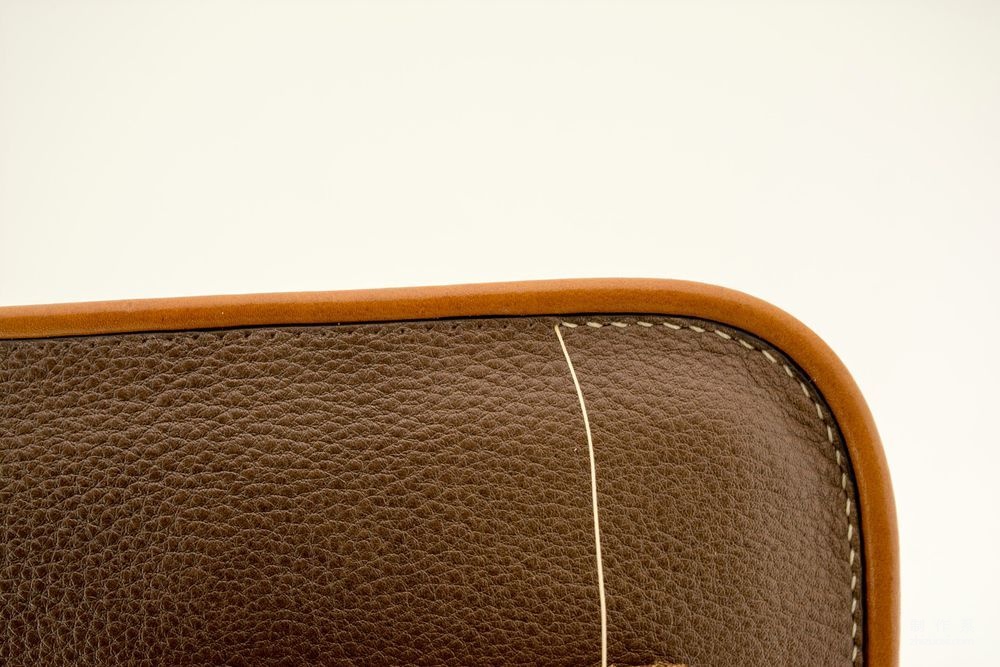When making handmade
leather goods, the most important thing is of course the design, but for most For students who imitate, design is a relatively difficult thing, although it requires repeated attempts. The second is the details, which are often a plus. Details are the devil! This is a short article to look at the details of leather goods production through the detail processing of a leather bag. The main content is to cover the buckles and shoulder strap buckles, and use hemming strips to process the seams. Finally, it is not a tutorial, it can only be regarded as a small experience, but I hope it will be useful. For the buckle, cut a piece of leather according to the size of the buckle, and then thin the leather. Either hand thinning or a thinning machine can be used, but because the edges are thinner than the middle, it is easier to do the edge processing after bending. After thinning, stick the leather to the hardware, and then use a bone knife to follow the lines of the hardware to do a simple shaping process.

Shoulder strap buckle The shoulder strap buckle is the same as the buckle. After cutting, the edges are also thinned, and then the edges of the leather are bent and wrapped, and the corners are cut into zigzag shapes. The seams are then secured to the side strips.

Edging strip /Seaming strips Hemming strips, I don’t know the exact scientific name, not only can they play a very good decorative role, but they are also more convenient for sewing. But the most important thing is that there are no stitches visible on the outside, which is a good way for novices to hide their clumsiness. A 3mm leather rope is used in the middle. The leather rope is glued to the leather strip with thinned edges, and then bent. The bone knife is shaped along the leather rope, and finally it is completely glued.



In order to echo the bottom, the flip cover is also hemmed.




Finally, you can take a look at the final effect of the foreskin buckle!!!



Hemming























